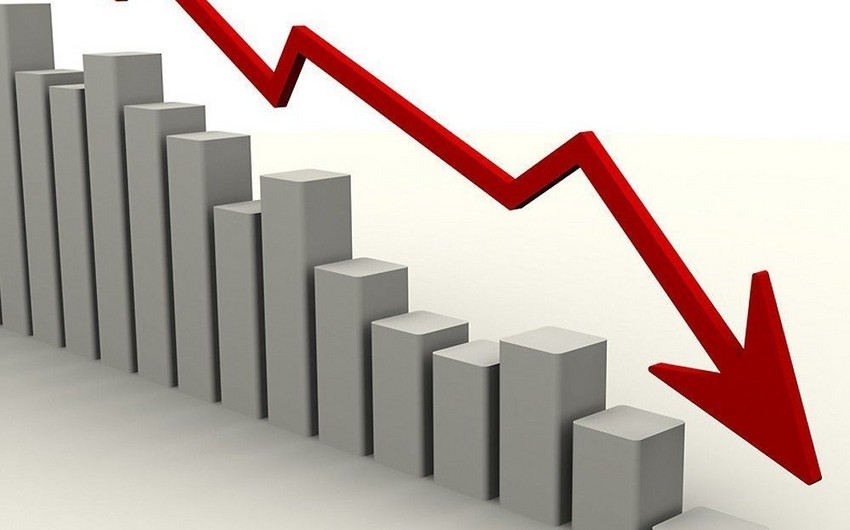No matter how much the Armenian authorities try to hide the country's economy's real situation, the statistics sparingly leaked to the press indicate the crisis and panic among both business circles and the population.
As you know, Armenia's population barely reaches 3 million people, and the country has been experiencing a demographic crisis for 30 years. And it's not just the low birth rate, but also the annual increase in migration. According to data from 2018, Armenia's net migration rate was negative, with six emigrants for every 1,000 people in the population.
In this case, the demographic decline is directly related to the economic crisis – the able-bodied population leaves the Republic for work, who could not find a job in their homeland.
With the outbreak of the coronavirus pandemic and the fighting in Karabakh, the situation has sharply worsened. Recently, the Russian media reported that only due to the influence of COVID-19, 1,213 shopping facilities were closed in September, while 5,058 were temporarily suspended, which is about 50% of all retail facilities operating in the country. Moreover, 23 enterprises closed down in the construction sector, and 231 enterprises temporarily stopped working. The activities of 205 companies operating in the real estate sector stopped working for some time, and five of them terminated working. Among the companies operating in providing "other services," 234 closed down, 1,057 temporarily suspended their activities.

The government liquidated 67 enterprises engaged in professional, scientific, and technical activities, and 493 enterprises were suspended. The registration of 39 administrative and support companies was canceled, and 449 such companies stopped working for some time. In the field of education, 21 companies closed down, while 136 propped up temporarily. Ten enterprises in health and social services shut down, and 120 institutions temporarily suspended their activities in this field.
Notably, with the outbreak of hostilities, the number of closed facilities increased even more. First, general mobilization deprived the employment sector of the bulk of the labor force. Secondly, the growth of public spending, negative and pessimistic attitudes due to the increase of coronavirus cases, and defeatist sentiments strongly affected consumer demand. And as they say, there is no demand, and there is no need for offers. Considering that business in the country mainly relies on the trade sector and services, the decline in economic activity in September exceeded 20-22% compared to the figures recorded at the beginning of the year – this is a reasonably heavy blow to the country's economy. For October, the statistics will be higher.
However, the Ministry of Finance of Armenia already recognizes that the forecasts for state tax revenues will not be met this year since the production process's complete or partial suspension naturally leads to a sharp reduction in tax payments.
Besides, the agricultural sector is experiencing severe problems - the war and the pandemic have already prevented the autumn planting of crops at the planned level, which, of course, will affect the final volume of production. According to the Armenian media, at present, Armenia's processing enterprises purchase 1 kg of grapes for 90 drams or 0.18 US dollars, which is lower than its cost. Just for comparison, let us note that last year the Yerevan Brandy Factory purchased grapes for 140-150 AMD per 1 kg. Of course, this ultimately leads to the bankruptcy of the vineyards. Why is this an important indicator? The fact is that 11% of Armenia's exports last year were alcoholic beverages, and such a deplorable state with the purchase price also indicates the decline of processing enterprises. This year they are unlikely to produce and supply products to the market in the same volume as and in previous years.

Moreover, given that Armenia persists in fighting, sending even pensioners to the front, and spending the rest of its reserves on military needs, the state will unlikely support entrepreneurs in the coming years, somehow restoring business. The possibility of attracting foreign investors to this country also seems unlikely. First, there will be no more exciting areas (after Azerbaijan takes back its mineral deposits in the Kalbajar region). Secondly, Armenia does not have access to profitable international transport routes due to its occupation policy, which automatically leads to an increase in the cost of transporting goods from the country and makes its production unprofitable.
It seems that the country's authorities are well aware of the economic abyss that Armenia stands in today. However, it is no longer worth it but is flying into this gap at the speed of light. However, it seems that the aggression has so blinded the Armenian leadership and government's eyes that they are ready to sacrifice the future of their population in the name of obviously losing occupation goals.


 https://static.report.az/photo/2cc4de1e-8e80-3f75-af6e-f735d4eb60e7.jpg
https://static.report.az/photo/2cc4de1e-8e80-3f75-af6e-f735d4eb60e7.jpg

